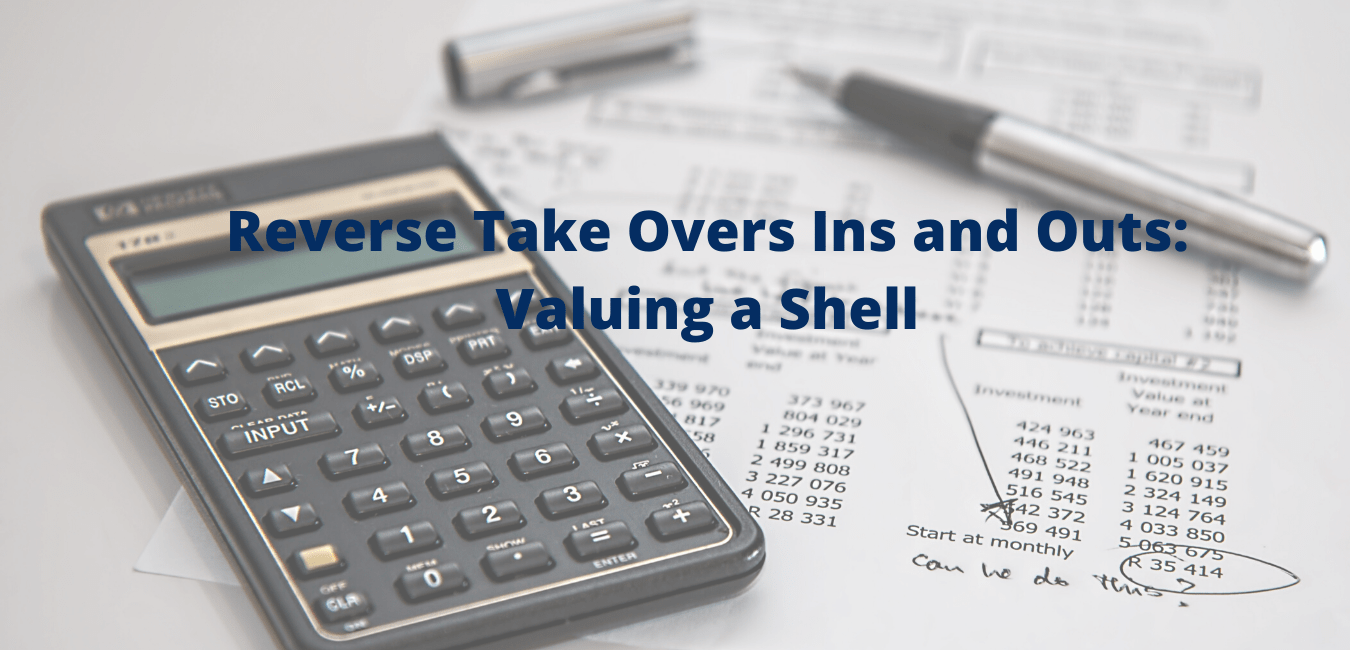How do you value a shell anyway?
By Jeffrey Stanger, ITB Solutions
There is an ostensible number out there in the ether somewhere that represents the nominal value of a clean shell, empty of cash, with no debt, and fully up to date with its filings. That ostensible value changes with the market conditions but at any one time there is a value that is acceptable to the market. Any cash that may exist in the shell’s treasury is simply added to the nominal value of the shell and that’s the price. The prevailing nominal value we are seeing these days is $200,000 – $250,000 dollars although some shells like to value themselves up to $500,000.
Okay. Having said that, there are many factors that come into play that in a particular instance could change the price the buyer is willing to play for that shell – up or down. Ultimately it has to be said that it’s at least Reverse Take Overs and Shell Companies equal parts science and art.
One of the factors is timing. There may be a time fuse, or window, on available financing. The financing is frequently contingent on the company becoming public; therefore it may behoove the buyer to do a deal quickly, and therefore at a somewhat loftier price, than might otherwise be the case.
One of them is management – i.e., how amenable are the two management teams to doing a deal – is it a good mutual fit? If you happen upon a very congenial and reasonable management team on the shell side that is willing not only to come to terms but perhaps stay on and assist you with the shareholder base that they are very familiar with… let’s just say you don’t find that every day and it may be worth a premium to do that deal.
And there are other factors that come into play. Maybe there are usable losses on the books that you can benefit from going forward. That has a value. Maybe there are fundable assets in the shell company that either make sense to your business or can be spun off. Maybe there are strategic relationships within the board or control group that represent a tangible benefit you want to capture. It can really go on and on.
How many shares should be out after the deal?
On the face of it why should anyone really care how many shares are out in the resulting “newco”? The market capitalization is the same if I have 10 million out or 100 million. All that changes is the share price isn’t it…? Can’t I just roll them back to get to a palatable number outstanding?
The short answer is, yes, you can roll them back and you see that happen quite often. Roll-backs anywhere from 1:2 right up to 1:20 are not uncommon. But you’d be surprised how many shareholders are incredibly resistant to consolidating their shares. There is a prevailing view – with some justification – that post consolidated shares quickly undergo a sell off and lose value. So it’s something to consider when seeking a shell. If you can find one with as few shares as possible do it, because once the vend-in occurs there’s going to be a lot more out there.
Thanks for taking a read. We’ll be back with other issues around RTO’s and the nature of good shells in the near future.
ITB Solutions provides consulting services to companies seeking to go public in Canada. Since 2005 ITB Solutions has provided listings development services to stock Exchanges in Canada such as the Canadian Securities Exchange. ITB Solutions currently provides New Listing Services to the NEO Exchange. We assist companies with the listing application and managing the process to become publicly tradable in Canada, as well as offering advice on how to make the most of your public listing.
ITB Solutions Incorporated
Jeffrey Stanger, President
647-500-0492
jeffrey@itbsolutions.ca


